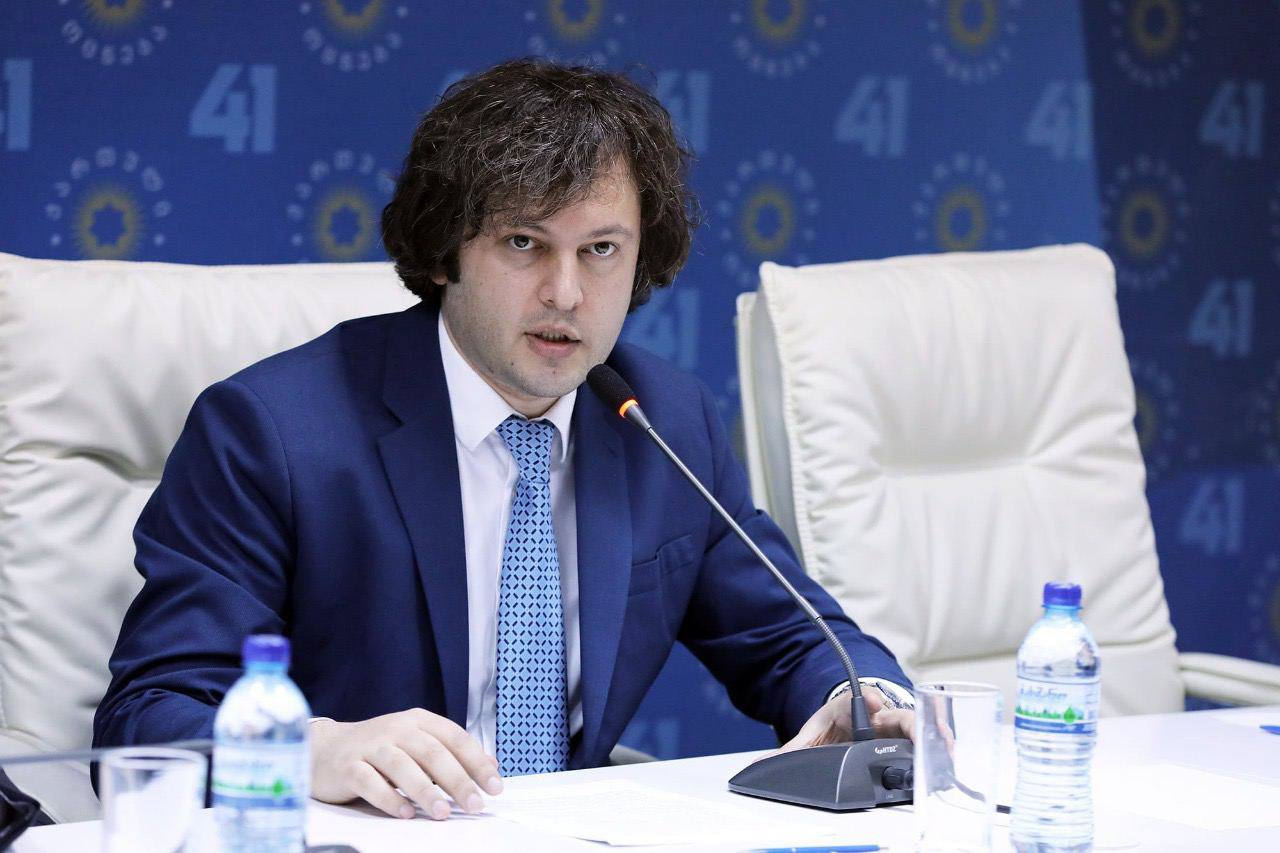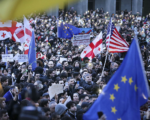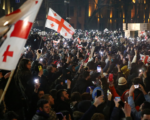Georgia PM Dismisses Vote-Rigging Claims Amid Mass Rally Call

Georgia’s Prime Minister, Irakli Kobakhidze, has hailed his party’s recent electoral victory as a “landslide,” vehemently rejecting allegations of vote-rigging and violence that have emerged in the wake of the elections. Speaking to the BBC, he acknowledged that “irregularities happen everywhere,” but maintained that the elections were conducted fairly.
Election Results and Allegations
Preliminary results from the Georgian election commission show the ruling Georgian Dream party secured an outright majority of 54%. This is despite exit polls from opposition media indicating victories for four opposition parties. In contrast, President Salome Zourabichvili, a pro-Western leader, condemned what she described as “total falsification” of the electoral process and has called for a rally by opposition supporters outside parliament on Monday.
Election observers have suggested that various voting violations could have influenced the results. However, Kobakhidze asserted that incidents were limited to a “couple of precincts” out of 3,111 polling stations.
Concerns Over Authoritarianism
Georgia’s political climate has grown increasingly authoritarian under Georgian Dream, which has enacted laws reminiscent of those in Russia, targeting media, NGOs receiving foreign funding, and the LGBT community. As a result, the European Union has frozen Georgia’s bid for membership, citing “democratic backsliding.”
In a notable reaction, Hungarian Prime Minister Viktor Orban congratulated Georgian Dream on its fourth term and plans to visit Georgia soon, a move that may raise eyebrows in Brussels.
Calls for Investigation
In a statement following the elections, Charles Michel, President of the European Council, emphasized the need to address the “alleged irregularities” and called for an independent investigation. Kobakhidze responded, acknowledging that election irregularities should be investigated but maintained that the overall conduct of the elections adhered to legal principles.
The opposition, which secured 61 seats in the 150-seat parliament, has refused to recognize the results, accusing Georgian Dream of stealing the election. Two major opposition parties, the Coalition for Change and United National Movement, have declared they will boycott parliament.
Claims of Foreign Interference
President Zourabichvili has stated that the election cannot be recognized and has accused Russia of meddling in the process. Kobakhidze, however, refuted claims that his government is pro-Russian, insisting that the opposition’s narrative is a tactic to undermine the government’s reputation among Georgia’s largely pro-European populace.
Despite Russian commentators welcoming Georgian Dream’s win as a potential shift towards Moscow, Kobakhidze emphasized that Georgia remains the only country in its region without diplomatic ties to Russia, a situation rooted in the ongoing occupation of 20% of its territory since the 2008 war.
Election Monitoring Reports
The introduction of an electronic vote-counting system during these elections was touted by Kobakhidze as a safeguard against manipulation. However, monitoring groups reported a range of violations, including bribery, intimidation, and ballot-stuffing, suggesting that the election results do not accurately reflect the will of the Georgian electorate. Per Eklund, a former EU ambassador and member of the National Democratic Institute delegation, noted that the pre-election environment severely undermined the democratic process, with voter intimidation reported both leading up to and on election day.
As the situation unfolds, the political landscape in Georgia remains tense, with the ruling party and opposition locked in a battle over the legitimacy of the electoral process.
















